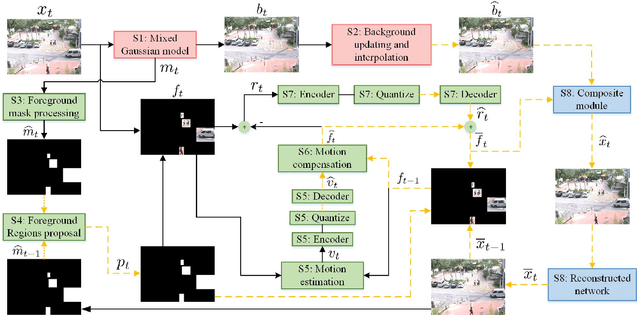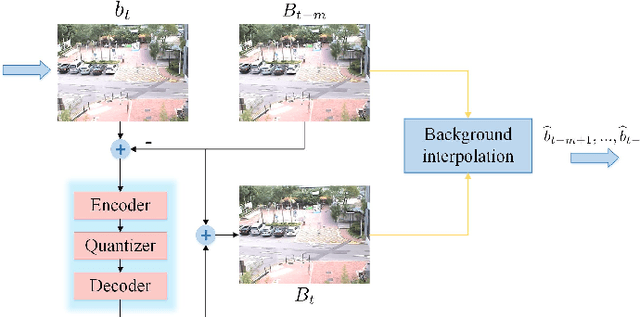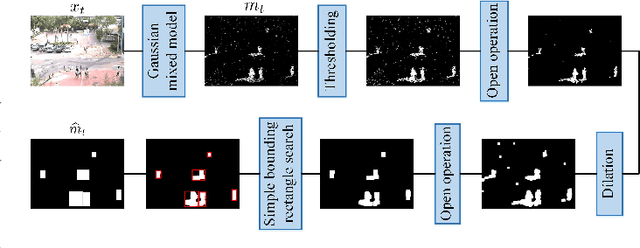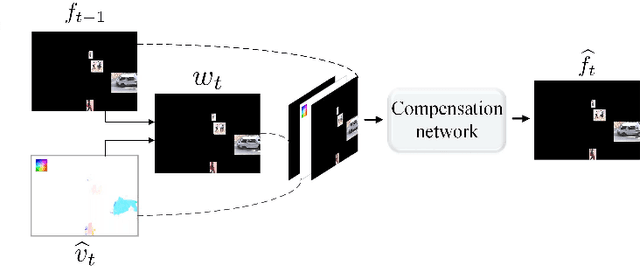A Foreground-background Parallel Compression with Residual Encoding for Surveillance Video
Paper and Code
Jan 18, 2020



The data storage has been one of the bottlenecks in surveillance systems. The conventional video compression algorithms such as H.264 and H.265 do not fully utilize the low information density characteristic of the surveillance video. In this paper, we propose a video compression method that extracts and compresses the foreground and background of the video separately. The compression ratio is greatly improved by sharing background information among multiple adjacent frames through an adaptive background updating and interpolation module. Besides, we present two different schemes to compress the foreground and compare their performance in the ablation study to show the importance of temporal information for video compression. In the decoding end, a coarse-to-fine two-stage module is applied to achieve the composition of the foreground and background and the enhancements of frame quality. Furthermore, an adaptive sampling method for surveillance cameras is proposed, and we have shown its effects through software simulation. The experimental results show that our proposed method requires 69.5% less bpp (bits per pixel) than the conventional algorithm H.265 to achieve the same PSNR (36 dB) on the HECV dataset.
 Add to Chrome
Add to Chrome Add to Firefox
Add to Firefox Add to Edge
Add to Edge